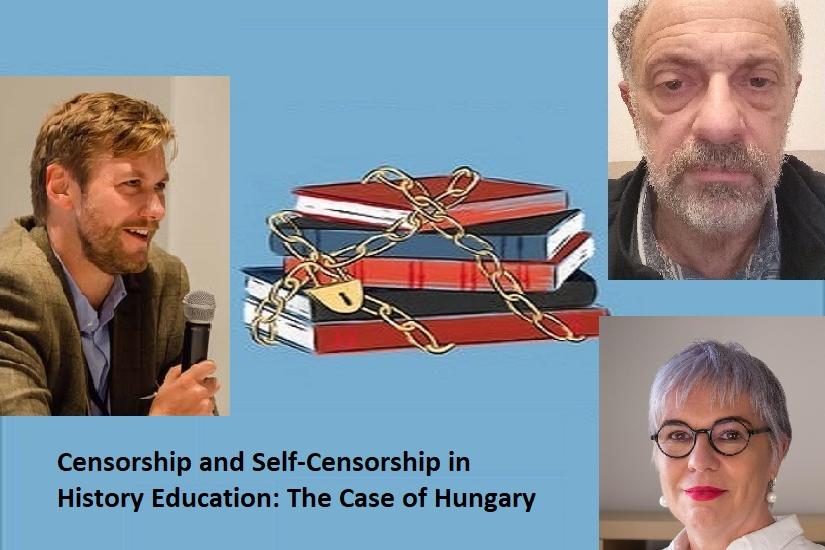
In the first part of the roundtable, Andrea Petö will outline the primary stages of the illiberal takeover in Hungarian history education and research. Having done this, she will then go on to analyze the origins of these policies. She argues that the persistence of unchanged research topics, structures, and gender composition within the profession, coupled with the co-optation of neoliberal managerialism and the shortcomings of European-level institutions, have collectively contributed to what is termed as “educated acquiescence.” This strategy, the paper contends, emerges as the only viable option alongside the alternative of exit or founding alternative institutions.
In the second part, former high school history teacher Péter Bihari will analyze how and to what extent censorship and self-censorship in Hungary creates a “big brother”-like effect. First, he will look at some constant questions in Hungarian history teaching, and reflect on what has changed during the “extreme centralization” since 2010. He will focus on a series of key points in education: core-curriculum and textbooks; final examinations; and schedules and proportions. In addition to the formal aspects of education, he will analyze the content of history education based on five contentious topics: structures v. events; scientific v. educational history; multiperspectivity; the scope of history and the foregrounding of “national traditions”; local histories and the question of minorities; and literature and art history. He will conclude with some insights into the question: must teachers “dance tied with knots” – or is everything not yet lost?
In the third part, Andreas Holtberget will broaden the perspective beyond the Hungarian context to look at the developments in the wider East-Central and Southeastern European regions. He will particularly focus on recent cases surrounding textbooks for use in secondary education in the Western Balkans, including controversies on teaching the 1990s Yugoslav wars, the role of mass media, the instrumentalization of history for the national political agenda, as well as cases of censorship and limitations to historical research in Poland and Romania. His contribution will also aim to point out potential directions for future research on (self-) censorship of history (education) across Europe.
Andrea Petö is Professor at the Department of Gender Studies at Central European University and a Doctor of Science of the Hungarian Academy of Sciences
Péter Bihari is a former High School History Teacher and CEU PhD History Graduate
Andreas Holtberget is Project Manager for EuroClio, the European Association of History Educators
A Zoom link will be sent upon request, please contact Margaretha Boockmann: BoockmannM@ceu.edu